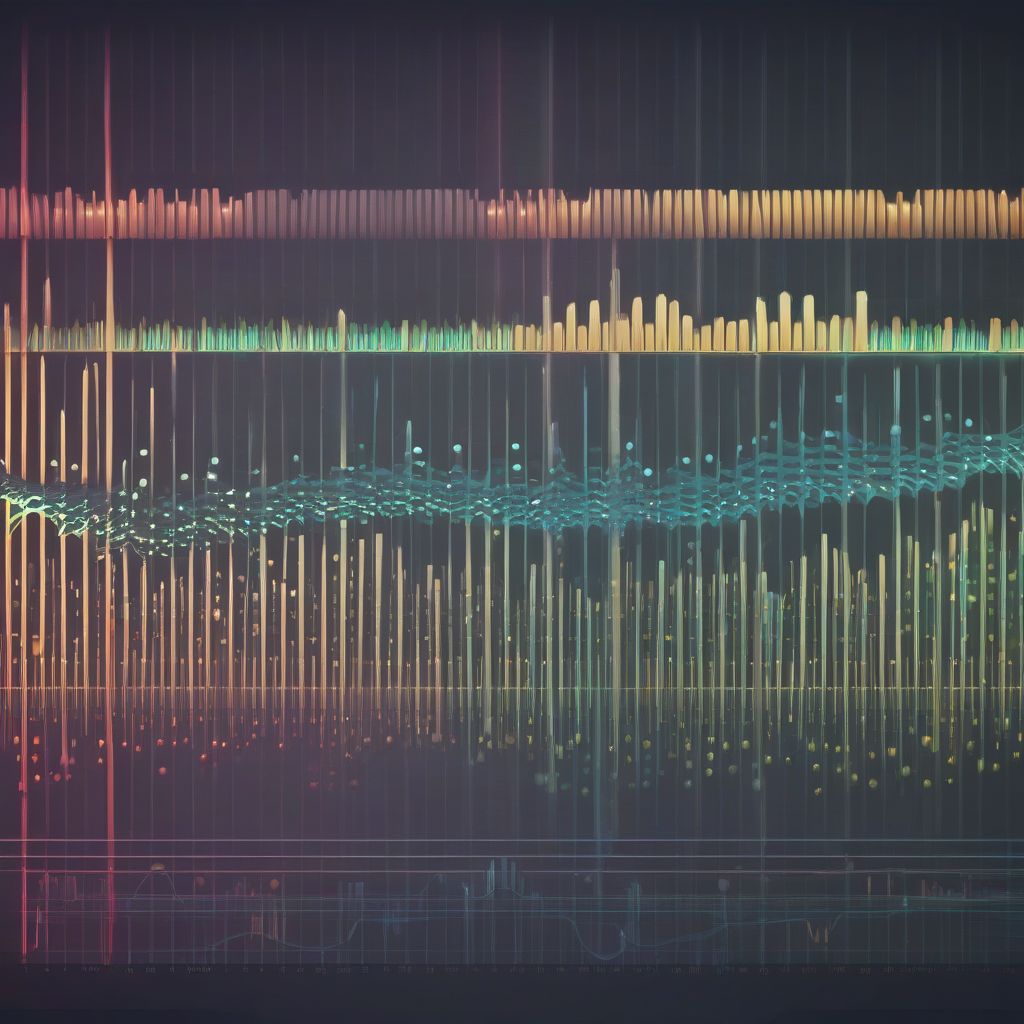Imagine this: you’ve poured your heart and soul into crafting the perfect mix. Your levels are balanced, the instruments are perfectly panned, and your effects are sending shivers down your spine. But there’s something missing. It just doesn’t have that professional “loudness” and clarity that makes a track stand out. This, my friend, is where the magic of mastering comes in, with EQ and compression as your secret weapons.
Mastering is the final polish that elevates your music from good to extraordinary. And at the heart of this process lie EQ and compression, two powerful tools that can make or break your master.
Understanding the Power of EQ
EQ, or equalization, is like a sculptor’s chisel for your audio frequencies. It allows you to shape the tonal balance of your track by boosting or cutting specific frequency ranges. Think of it as fine-tuning the highs, mids, and lows to achieve clarity, punch, and a balanced sonic landscape.
Why is EQ Crucial in Mastering?
- Cleaning Up the Mix: Even the most meticulous mixes can benefit from a final EQ sweep during mastering. You can use subtle cuts to tame problematic frequencies, like a boomy low-end or harsh high frequencies, that might have gone unnoticed during mixing.
- Creating Space and Separation: By carefully adjusting the frequencies of individual instruments, you create sonic space, allowing each element to breathe and shine through the mix. This is especially important when dealing with instruments that occupy similar frequency ranges.
- Enhancing Overall Tonality: Mastering EQ allows you to sculpt the overall tone of your track. Want a warm, vintage sound? Boost those low-mids. Aiming for a bright, modern feel? A gentle lift in the high frequencies can work wonders.
The Dynamic Duo: Compression in Mastering
Imagine listening to a song where the vocals are sometimes too quiet, sometimes overwhelmingly loud. Frustrating, right? That’s where compression comes to the rescue.
Compression is the art of controlling the dynamic range of your audio – the difference between the loudest and quietest parts of your track. By reducing this dynamic range, compression helps create a more balanced and powerful sound.
How Compression Enhances Your Masters
- Boosting Perceived Loudness: Compression can trick our ears into perceiving a track as louder without actually exceeding the maximum volume limit. It achieves this by reducing the difference between the loudest and quietest parts, allowing you to increase the overall level of the track.
- Adding Punch and Glue: Compression can add punch and “glue” to your mix. By evening out the levels of individual instruments and the overall track, it creates a more cohesive and powerful sound.
- Creating Special Effects: While often used subtly in mastering, compression can also be pushed to create interesting effects. From adding a warm, vintage tone to achieving that iconic “pumping” effect in electronic music, the creative possibilities are vast.
 EQ and Compression in Mastering
EQ and Compression in Mastering
The Synergy of EQ and Compression
Now, here’s the secret sauce: EQ and compression work best hand-in-hand. While they serve distinct purposes, their combined power can transform your masters.
For instance, let’s say you have a bassline that’s lacking clarity. By using EQ to cut some of the muddy low-mids and a touch of compression to even out its dynamics, you can achieve a punchy and defined bass that sits perfectly in the mix.
Mastering Mistakes to Avoid
While EQ and compression are indispensable tools, their misuse can wreak havoc on your master. Here are some common pitfalls to avoid:
- Over-EQing: Resist the temptation to drastically boost or cut frequencies. Subtlety is key in mastering EQ. Start with small adjustments and listen carefully to how they impact the overall sound.
- Over-Compressing: Too much compression can suck the life out of your music, leaving it sounding flat and lifeless. Aim for a natural-sounding compression that enhances the dynamics without squashing them entirely.
- Ignoring the Importance of Monitoring: Accurate monitoring is crucial for making informed decisions during mastering. Invest in a good pair of studio monitors or headphones to ensure you’re hearing your master accurately.
Essential Tips for Mastering Success
Mastering is a complex art form that takes years to master. But don’t let that intimidate you! Here are some tips to guide you on your journey:
- Start with a Great Mix: Mastering can enhance a good mix but it can’t fix a bad one. Ensure your mix is well-balanced and free of any technical issues before you dive into mastering.
- Use High-Quality Reference Tracks: Referencing professionally mastered tracks in your genre can provide invaluable insights into how your master should sound. Pay attention to the overall loudness, tonal balance, and dynamic range of your reference tracks.
- Less is Often More: When in doubt, err on the side of subtlety. It’s easier to add more processing later than it is to undo excessive EQ or compression.
- Train Your Ears: The more you listen to music critically, the better you’ll become at identifying subtle nuances in your masters.
- Don’t Be Afraid to Experiment: While there are general guidelines for using EQ and compression, there’s no “one-size-fits-all” approach to mastering. Don’t be afraid to experiment and find what works best for your music.
Conclusion
Mastering, with EQ and compression as its cornerstones, is the final step in transforming your music from a collection of tracks into a polished and professional-sounding masterpiece. By understanding the power of these tools and approaching them with a delicate touch and a keen ear, you’ll be well on your way to creating music that truly shines. Remember, mastering is an art form, and like any art, it requires practice, patience, and a deep passion for sound.
Ready to take your music production skills to the next level? Explore our articles on The Importance of Monitoring Accuracy in Mixing and Mastering and Tips for Creating Powerful and Punchy Drum Tracks to further refine your craft.
We’d love to hear your thoughts! Share your experiences with EQ and compression in the comments below and let’s keep the conversation going.
[amazon bestseller=”music production”]
